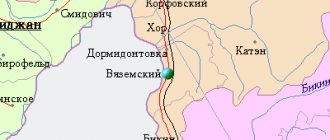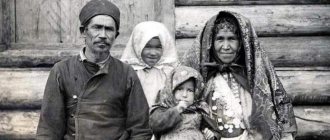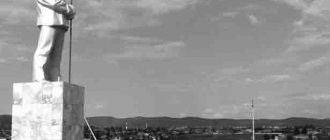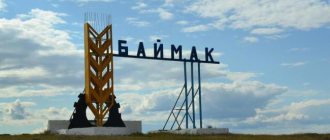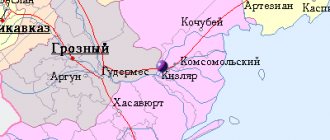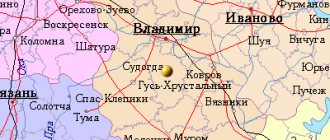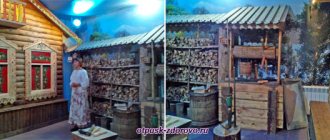This term has other meanings, see Blagoveshchensk (meanings).
For the administrative center of the Amur region, see Blagoveshchensk.
| City Blagoveshchensk bashk. Blagoveshchen Flag | Coat of arms |
| A country | Russia, Russia |
| Subject of the federation | BashkortostanBashkortostan |
| Municipal district | Blagoveshchensky |
| urban settlement | Blagoveshchensk city |
| Coordinates | 55°02′00″ n. w. 55°59′00″ E. d. / 55.03333° n. w. 55.98333° E. d. / 55.03333; 55.98333 (G) [www.openstreetmap.org/?mlat=55.03333&mlon=55.98333&zoom=12 (O)] (Z)Coordinates: 55°02′00″ N. w. 55°59′00″ E. long / 55.03333° north w. 55.98333° E. d. / 55.03333; 55.98333 (G) [www.openstreetmap.org/?mlat=55.03333&mlon=55.98333&zoom=12 (O)] (I) |
| Chapter | Badykshanov Rustam Tagirovich |
| Based | in 1756 |
| First mention | 1756 |
| Former names | Blagoveshchensk plant (1756-1941) |
| Center height | 120 |
| Population | ↗35,037[1] people (2016) |
| National composition | Russians, Tatars, Bashkirs, Mari |
| Confessional composition | Orthodox, Sunni Muslims |
| Names of residents | Blagoveshchentsy, Blagoveshchenets, Blagoveshchenka |
| Timezone | UTC+5 |
| Telephone code | +7 34766 |
| Postal codes | 453430 |
| Vehicle code | 02, 102 |
| OKATO code | [classif.spb.ru/classificators/view/okt.php?st=A&kr=1&kod=80417000000 80 417 000 000] |
| Official site | [www.adm-blagrb.ru/ -blagrb.ru] |
| Blagoveshchensk Moscow |
| Ufa Blagoveshchensk |
Audio, photo and video
on Wikimedia Commons
K: Settlements founded in 1756
Blagoveshchensk
(Bashk. Blagoveshchen (inf.)) is a city (since 1941) in Russia, the administrative center of the Blagoveshchensky district of the Republic of Bashkortostan.
Name
The origin of the city's name has several versions. For many years it was believed that the city was named after the Church of the Annunciation of the Blessed Virgin Mary operating at the copper smelter.
Research conducted by local historian V. E. Meshcheryakov connects the name of the city with the feast of the Annunciation, which occurred during the foundation of the plant. It is realistic to assume that it was at this time that the name Blagoveshchensky Plant (in common parlance Blagzavod) was recorded for the plant and the village around it.
Why do princes need a seminary?
Further on is Sovetskaya Street, formerly Voskresenskaya. The most interesting building is the pedagogical school, several interconnected buildings made of red brick, one with a construction date of 1873. In old Russia there was such a form of education - a teachers' seminary. Primary school teachers were trained here. In the Ufa province, the first such seminary was founded by the princes Dashkov in 1876.
The curriculum included the Russian and Church Slavonic languages, arithmetic, geometry, land surveying, history, geography, drawing, singing, music, gymnastics and crafts. Students received scholarships; a separate class consisted of scholarship holders of the Orenburg Cossack Army.
With the advent of the teachers' seminary at Blagzavod, life completely changed - it became the spiritual and cultural center of the village.
In Soviet times, the teachers' seminary was transformed into pedagogical courses, then into a school, the graduates of which were famous throughout Bashkiria.
But at the entrance I see a fresh sign “Blagoveshchensk Multidisciplinary Professional College.” It turns out that the pedagogical college was recently merged with a technical school that trains foundry workers, ship repairers and technologists. Some of the city residents are simply outraged by this.
Lydia Aleksandrovna, from the old Silin family, native residents of Blagoveshchensk, knows the school well.
“The best pedagogical school in Bashkiria was destroyed for no apparent reason,” she is very angry. “His graduates were in great demand, people stood in line behind them. The strongest teaching staff, and what traditions! You know, real teachers from that century, if you don’t want them, you’ll respect them.
- Is it true? Are you exaggerating?
– No, I remember, in the summer I worked as a teacher in a pioneer camp together with a girl from this pedagogical school. And I admired her: what she didn’t know, what she couldn’t, how she didn’t attract children! Because the educational institution arose on strong traditions - everything came from the teachers’ seminary, and young teachers were educated in that vein. And so, they forcibly united - let's say so...
In general, city residents have a lot of questions.
It’s easy to destroy traditions – just scribble on paper in the boss’s office and that’s it, the old school no longer exists. But it will not be possible to create traditions as easily; this requires a large culture and a series of generations.
Belskaya street leads from Sovetskaya towards Belaya. On the other side of the river is Blagoveshchensky or Bolshoi Island, a haven for fishermen and wild berry lovers. I stop a passerby.
“Now the haze is a hindrance, but in clear weather you can see the lights of Ufa factories from here,” says Alexey. “When there are southern winds, sometimes the stench travels directly across the floodplain.
Turning behind the old barn, Alexei and I walk towards the Potekha River. A dead-end ravine branches off from the main ravine. The steep slope collapsed, exposing roots, and tree trunks leaned towards each other. Nearby are black log cabins.
“Here I hid in the woodshed with my friends when a special operation was carried out,” Alexey recalls. - On these same days, in December...
Ten years ago, the dense force that controls the movement of life set in motion mechanisms that were tearing to shreds the dignity and destinies of people.
The head of the republic in the presidential elections in Blagoveshchensk received fewer votes than the “against all” column. The Russian city, despite all the electoral tricks, actually completely voted against Murtaza Rakhimov.
“Maybe this was the main purpose of the purge.” “Bring the city to its knees,” Alexey comments.
“The Potekha River flows to the city from the village of Suneevka!” Photo by Sergei Sinenko
The city has a long and interesting history. Photo by Sergei Sinenko
Economy
- Blagoveshchensk reinforcement satellite"
- Bashkir polyester complex "Polyef".
- Electronic warfare base "Volgotanker".
- Priufimskaya CHPP.
- ,
- Blagoveshchensk furniture factory,
- for the production of mineral wool.
- Poultry farm "Turbaslinsky Broiler".
- Factory for the production of doors "Ekoles".
- Company for the production of bolts and nuts "Technostandard".
- Factory for the production of corrugated cardboard "Perekrestok".
- Factory for the production of disposable tableware "Blagplastik."
- Asphalt plant.
- Enterprise "Radon".
- CJSC Blagoveshchensk Shipbuilding and Shiprepair Plant (BSSZ).
- LLC "Armaturny Zavod"
Chronicle of a special operation
Two Russian cities of Bashkiria were punished for disobedience almost simultaneously, Blagoveshchensk and Beloretsk. Both of them voted “wrong” in the elections. Beloretsk, as its residents say, was “turned into an aul” - the blast furnaces were closed, steel smelting was stopped, the railway connecting the vast territory of Belorechye was dismantled, and management was transferred to Cypriot offshore companies...
Blagoveshchensk was punished in the Bai style, like a horse. Only instead of a whip they used a boot lined with nails, a rubber truncheon and a machine gun stock.
According to the official version, a preventive measure was carried out in the city due to rampant crime. Personnel from the Blagoveshchensk GROVD (130 people) and riot police (about 20 people) took part in the operation.
In the period from December 10 to 14, police officers “checked brothels, apartments where dysfunctional families live, dormitories, public places, including discos, bars, wine bars, snack bars.” The operation lasted for four days and captured not only the city, but and the surrounding villages of Bedeeva Polyana, Verkhniy Izyak, Ilyino-Polyana and Udelno-Duvanei.
Here are some of the events chronologically according to media reports.
December 10
An OMON detachment arrived from Ufa, and the head of the GROVD created an operational headquarters for the special operation. Raids were carried out in the GAZ microdistrict. Among those detained and beaten were 4 teenagers. The city market is cordoned off. People were lined up, beaten with batons, forced to turn off their mobile phones, then loaded into vans. Towards evening, the police began to clear the area near Sedova Street (city center), then the working outskirts.
December 11th
A raid was carried out on the dormitories: “river workers” No. 2 and BVK. In the evening, a raid in the area of the street. Sedova. From 20:00 the village of Bedeeva Polyana was cordoned off, an operation was carried out in the village of Verkhniy Izyak, the village of Ilyino-Polyana was cordoned off, and the House of Culture in the village of Udelno-Duvanei was cordoned off. Teenagers at rural discos were beaten, robbed of money, jewelry and mobile phones, then taken to the basement of the GROVD. There the executions continued. One pregnant woman was beaten in the stomach. A.S. After being detained twice, Shatanov cut his veins to avoid a third.
18-year-old Sasha Kulakov says: “People stood along the walls in the foyer, corridors and even on the stairs. We were taken to the basement and also placed facing the wall. The man was resting his forehead against the wall, his feet were strictly shoulder-width apart, at a distance of a meter from the wall, his back was curved as much as possible, his hands were behind his head.”
Denis Sokolov was taken away in an ambulance - he held on until the last, and lost consciousness during the beating. Alexey Raschesov was beaten on the bus so that his bladder was punctured. They dragged me to the duty room by my hair and immediately took me to the intensive care unit. According to the doctor who operated on him, the guy will remain disabled for life.
12 December
Cleaning up in the Inza and traffic police districts, the city center, and then in the villages. In the village of Verkhniy Izyak, 10th grade student Vilya Akhmetyanov was brutally beaten. The abuse in the basement of the GROVD continued. According to eyewitnesses, one man’s rib was broken, another’s salary was taken away and they began to beat him.
Selective raids around the city continued. Oleg Dyakonov, a short-sighted asthmatic child, was brutally beaten. Repeated raid in cafes in the city and nearby villages. Detainees are forced to sign blank forms and shout “I love the police” as was the case in previous days. According to the media, there are facts and evidence that girls were raped in one of the rooms of the police department. They write about a bucket filled with condoms.
December 14
Isolated facts of detention. At 12:00 the police began beating teenagers aged 12-14 on the street. The son of the woman who stood up for the children was also taken away by the forces of order, and she herself was beaten with a baton. In the evening the riot police left. The "active phase" is completed.
City monuments and memorials
- Monument to the Righteous Among the Nations Nikolai Yakovlevich Kiselev, located near secondary school No. 5 (opened November 6, 2015)
- Monument to V.I. Lenin, located opposite the city house of culture.
- Bust of V.I. Lenin, located opposite the school-gymnasium No. 1.
- Bust of Nelyubin Ivan Yakovlevich.
- Bust of Salavat Yulaev, located opposite the editorial office of the Panorama newspaper (installed in 2005).
- Monument to M. S. Myasnikov, founder of the Blagoveshchensk Copper Smelter (opened 09/23/2011).
- Memorial to the memory of fellow countrymen who fell during the Great Patriotic War (opened in the mid-1970s). Located near the Lower Pond.
- Memorial in front of the Salyut cinema (opened in 2009).
- Memorial to the memory of fellow countrymen who fell during the Great Patriotic War. Located on the territory of the Blagoveshchensk reinforcement plant (opened in 1995).
Down Sedova – Dashkovskaya
The first impression is that the city is quiet and cozy.
People look calm and straight. There are almost no passers-by. I catch the girl’s shy but attentive gaze - the muted light of her sharp bluish eyes. And it goes without saying that it became impossible for both of them not to say a word. Well, I’ll check to see if young people know why the new buildings were called “Inza”? “Yes, Mr. Dashkov brought workers here from the Simbirsk province, now the Ulyanovsk region, from the town of Inza,” Vera answers with pleasure. “Sometimes we even say: “We are from Inzevo places.” Do you know what Sedov Street was called before the revolution?
– I don’t know this yet.
- Dashkovskaya, in honor of our princes! – she reports, very pleased with the progress of the conversation.
Boys from school No. 6 Danila, Denis and Zhenya are walking along Lenin Square. They are busy with important work - shaking off snow from the fir trees at the monument to the leader.
“There’s nothing to tell about Blagoveshchensk, it’s small, it’s not even a city, but just a regional center,” says Denis. – I’d better tell you about the school: there are good teachers, and there are so-so ones. One of the best people is Svetlana Yakovlevna, who teaches Russian language, literature, homeroom and health classes. Sometimes she makes us laugh on purpose, and sometimes she becomes strict and gives us bad marks, but honestly. Here is our House of Culture, I advise you to take a look.
Since they recommend it, I head there. I meet Elena Antonova, an employee of the Palace of Culture, and she takes me to the stage where the Russian folk song ensemble “Uralochka” is rehearsing.
– How does the ensemble differ from others? - Elena thinks. – A rare ancient repertoire, including little-known Cossack songs. And also because there are a lot of men in it, which is generally rare for amateur groups!
Natalya Lobova, deputy director of the Children's Art School, takes me to young artists, the most spontaneous people in the world. The topic of the lesson is still life. The gouache drawings show a green jug, pepper pods and an apple. One drawing stands out sharply - the objects are the same, but the jug is blue.
“An artist has the right to his own opinion and his own vision of the world,” savvy people explain to me (and their eyes, of course, are cunning).
- And in general, he has the right to even be color blind, we have already discussed this issue today! – declares the girl with the “artistic” name of Tsvetana.
From the main square I go downhill. Along the street there are private houses ranging from rustic-looking log huts to two-story brick cottages. Many houses have wooden lace. The road leads towards the pond past the small log church of the Annunciation.
If “Inza” is the new microdistricts, then the townspeople call the old part “Niza”
The border runs near the Dashkovs’ house and the factory buildings. The ancient building of the valve plant is a monument of history and architecture. Its construction began in 1856 in honor of the 100th anniversary of the founding of the enterprise. Next to the factory building there are two princely houses, a one-story manor house of the Dashkov princes, which today houses the city museum. The adjacent two-story building is a factory office building. There is also a pond here that is fed by the Potekha River.
The history of the city is reminiscent of the founding date of the Blagzavod on a cast-iron grate near the pond - 1756.
Next to the pond, adjacent to the floodplain of Potekha, begins a pine forest, planted by the Dashkov princes in the 1890s - a place of recreation for townspeople, holidays and folk festivals.
“There are good teachers, and there are so-so ones... Among the best people is Svetlana Yakovlevna, who teaches Russian language, literature, a class hour and a health lesson.” Photo by Sergei Sinenko
Excerpt characterizing Blagoveshchensk (Bashkortostan)
- Very bad for me?.. What is it? – asked the sensitive Natasha. Sonya sighed and did not answer. The Count, Petya, m me Schoss, Mavra Kuzminishna, Vasilich entered the living room, and, having closed the doors, they all sat down and sat silently, without looking at each other, for several seconds. The count was the first to stand up and, sighing loudly, began to make the sign of the cross. Everyone did the same. Then the count began to hug Mavra Kuzminishna and Vasilich, who remained in Moscow, and, while they caught his hand and kissed his shoulder, he lightly patted them on the back, saying something vague, affectionately soothing. The Countess went into the imagery, and Sonya found her there on her knees in front of the images that remained scattered along the wall. (The most expensive images, according to family legends, were taken with them.) On the porch and in the courtyard, the departing people with daggers and sabers with which Petya had armed them, with their trousers tucked into their boots and tightly belted with belts and sashes, said goodbye to those who remained. As always during departures, much was forgotten and not properly packed, and for quite a long time two guides stood on both sides of the open door and steps of the carriage, preparing to give the Countess a ride, while girls with pillows, bundles, and carriages were running from home to the carriages. , and the chaise, and back. - Everyone will forget their time! - said the countess. “You know that I can’t sit like that.” - And Dunyasha, gritting her teeth and not answering, with an expression of reproach on her face, rushed into the carriage to redo the seat. - Oh, these people! - said the count, shaking his head. The old coachman Yefim, with whom the countess was the only one who decided to ride, sitting high on his box, did not even look back at what was happening behind him. With thirty years of experience, he knew that it wouldn’t be long before they told him “God bless!” and that when they say, they will stop him two more times and send him for forgotten things, and after that they will stop him again, and the countess herself will lean out of his window and ask him, by Christ God, to drive more carefully on the slopes. He knew this and therefore more patiently than his horses (especially the left red one - Falcon, who kicked and, chewing, fingered the bit) waited for what would happen. Finally everyone sat down; the steps gathered and they threw themselves into the carriage, the door slammed, they sent for the box, the countess leaned out and said what she had to do. Then Yefim slowly took off his hat from his head and began to cross himself. The postilion and all the people did the same. - With God blessing! - said Yefim, putting on his hat. - Pull it out! - The postilion touched. The right drawbar fell into the clamp, the high springs crunched, and the body swayed. The footman jumped onto the box as he walked. The carriage shook as it left the yard onto the shaking pavement, the other carriages also shook, and the train moved up the street. In the carriages, carriages and chaises, everyone was baptized at the church that was opposite. The people remaining in Moscow walked on both sides of the carriages, seeing them off. Natasha had rarely experienced such a joyful feeling as the one she was experiencing now, sitting in the carriage next to the countess and looking at the walls of an abandoned, alarmed Moscow slowly moving past her. She occasionally leaned out of the carriage window and looked back and forth at the long train of wounded preceding them. Almost ahead of everyone, she could see the closed top of Prince Andrei's carriage. She did not know who was in it, and every time, thinking about the area of her convoy, she looked for this carriage with her eyes. She knew she was ahead of everyone. In Kudrin, from Nikitskaya, from Presnya, from Podnovinsky, several trains similar to the Rostov train arrived, and carriages and carts were already traveling in two rows along Sadovaya. While driving around the Sukharev Tower, Natasha, curiously and quickly examining the people riding and walking, suddenly cried out in joy and surprise: “Fathers!” Mom, Sonya, look, it’s him! - Who? Who? - Look, by God, Bezukhov! - Natasha said, leaning out of the carriage window and looking at a tall, fat man in a coachman’s caftan, obviously a dressed-up gentleman by his gait and posture, who, next to a yellow, beardless old man in a frieze overcoat, approached under the arch of the Sukharev Tower. - By God, Bezukhov, in a caftan, with some old boy! By God,” said Natasha, “look, look!” - No, it’s not him. Is it possible, such nonsense? “Mom,” Natasha shouted, “I’ll give you a beating that it’s him!” I assure you. Wait, wait! - she shouted to the coachman; but the coachman could not stop, because more carts and carriages were leaving Meshchanskaya, and they were shouting at the Rostovs to get going and not delay the others. Indeed, although already much further away than before, all the Rostovs saw Pierre or a man unusually similar to Pierre, in a coachman's caftan, walking down the street with a bowed head and a serious face, next to a small beardless old man who looked like a footman. This old man noticed a face sticking out of the carriage at him and, respectfully touching Pierre's elbow, said something to him, pointing to the carriage. For a long time Pierre could not understand what he was saying; so he was apparently immersed in his thoughts. Finally, when he understood it, he looked as directed and, recognizing Natasha, at that very second, surrendering to the first impression, quickly headed towards the carriage. But, having walked ten steps, he, apparently remembering something, stopped. Natasha’s face, sticking out of the carriage, shone with mocking affection. - Pyotr Kirilych, go! After all, we found out! It is amazing! – she shouted, holding out her hand to him. - How are you? Why are you doing this? Pierre took the outstretched hand and awkwardly kissed it as he walked (as the carriage continued to move). - What's wrong with you, Count? – the countess asked in a surprised and compassionate voice. - What? What? For what? “Don’t ask me,” Pierre said and looked back at Natasha, whose radiant, joyful gaze (he felt this without looking at her) filled him with its charm. – What are you doing, or are you staying in Moscow? – Pierre was silent. - In Moscow? – he said questioningly. - Yes, in Moscow. Farewell. “Oh, I wish I were a man, I would certainly stay with you.” Oh, how good it is! - Natasha said. - Mom, let me stay. “Pierre looked absentmindedly at Natasha and wanted to say something, but the countess interrupted him: “You were at the battle, did we hear?” “Yes, I was,” answered Pierre. “Tomorrow there will be a battle again...” he began, but Natasha interrupted him: “What’s the matter with you, Count?” You don't look like yourself...
The structure of people's life
So, Blagoveshchensk.
The population is a little more than 30 thousand people, more than 4/5 are Russians. The city owes its birth to three people: the Simbirsk merchant Matvey Myasnikov, who founded the copper smelter in 1756, and the princes Dmitry and Andrey Dashkov, the owners of the plant, who did the most for its development - the opening of new industries and jobs, the spread of education and culture.
It always surprised me why, in this bearish corner (what else was this place 260 years ago?), from which even four years of racing would not reach the copper mines, the merchant Myasnikov founded the “Potekha Copper Smelting Factory for Plank Copper and Strip Iron.”
Judge for yourself, it was assigned mines and mines in the Belebeevsky, Sterlitamak and Orenburg districts, that is, they transported ore over distances of tens and hundreds of miles, which determined the subsequent fate of the enterprise - unprofitability.
Be that as it may, the location was chosen north of Ufa at the confluence of the Potekha River and the Belaya River. Construction began with the construction of a dam, and the Annunciation Church was erected nearby. Blagzavod became in the 19th century a large village of 6-7 thousand inhabitants with its own post and telegraph, merchants, shops and warehouses, a hospital-outpatient clinic and a zemstvo first-aid post, a bailiff and a justice of the peace.
Among the residents there are many Old Believers. Workers were needed, and given the difficulty of hiring, managers had to first secretly and then openly accept Old Believers who were moving in communities. With a strict attitude to work and a sober life, over time they occupied responsible positions and influenced factory life.
The plant changed hands several times: from Myasnikov to General Khlebnikov, then to the landowner Poltoratskaya. In 1839, its owner became Elizaveta Vasilievna, the widow of Dmitry Vasilyevich Dashkov, a diplomat and lawyer, statesman and literary figure, whom Alexander Pushkin called his friend - Dashkov was a member of the Arzamas literary society.
Princes Andrei and Dmitry received a brilliant upbringing. For example, Dmitry lived in Paris in his youth and spent a lot of time in the house of Balzac, whose wife, Evelina Ganskaya, was a relative of the Dashkovs. Both due to connections with the Russian aristocracy, and due to the position of their father, the doors of a brilliant career were opened for the brothers, but either conscience or character resisted such a successfully developing biography.
For some reason, the brothers swore an oath to each other never to serve in government service. This was so surprising for that time that, when visiting the Dashkovs’ mother, Tsar Alexander II turned to Prince Dmitry with a perplexed question: “Why don’t you serve?”
“I once asked him a question: why doesn’t he close a plant that is making a loss? Dmitry Dashkov answered: “What will the workers do, especially the old people who are no longer accustomed to peasant labor?” (Sergei Elpatievsky “Memories of Fifty Years. Ufa”)
The brothers had their own attitude to power, and to the bureaucracy, and to the nobility. When they were in Ufa, they did not meet people in uniform and tails, did not attend a meeting of the nobility, and did not take part in noble affairs. They walked around in undershirts, like merchants or artisans, and made acquaintance only with those who dealt with zemstvo issues.
Is it possible to be free in an unfree world? Yes, the Dashkov princes answered, if you organize your own economy and live in your own world, avoiding unfree people
On the southern façade of the building of the former teachers' seminary, the year of construction is indicated - 1873. Photo by Sergei Sinenko
Prince Andrey in 1875 became the first chairman of the Ufa provincial zemstvo government. Thanks to education and energy, he managed to organize new branches of the zemstvo economy in the region: road construction, land surveying, insurance, accounting, and some handicrafts.
Prince Dmitry lived in the Blagoveshchensk plant without a break, and saw the main meaning in the “organization of people’s life.” He opened the production of agricultural machines for peasant use. He started a stud farm to improve the breed of peasant working horse. He organized the collection of berries that were wasted in the local forests, and the production of berry wines from them.
He opened a hospital-outpatient clinic and a medical center at the plant. He organized a public library and “auditorium” in the village – the future People’s House. He built a teachers' seminary to train rural teachers of the nearest provinces and the Orenburg and Ural Cossacks.
The main thing that the brothers lived by was the idea of zemstvo self-government, understood as communities of free people united by a common economy
Sketches of the characters of the village residents were left by the writer Sergei Elpatievsky, who was in exile in the Ufa province and worked in the outpatient clinic at Blagzavod. According to his observations, the local people, the remnants of the indigenous population, stood out from the masses of newcomers with their rich and vivid speech - an abundance of original Russian words and knowledge of ancient songs, and were distinguished by a strong, freedom-loving character, without humility and submission.
Litigation
Based on the results of the work of a special commission of the central apparatus of the Ministry of Internal Affairs, it was recognized that during the special operation in Blagoveshchensk from December 10 to 14, up to 1000 people were injured. (According to unofficial data, at least twice as much).
After lengthy delays, the prosecutor's office opened a criminal case, and 341 people were recognized as victims.
However, as stated by the prosecutor of Bashkortostan, Alexander Konovalov, “a significant part of the police officers, in particular, members of the special police detachment, who mainly caused harm to citizens, remained unidentified, since they carried out the special operation wearing masks.”
As a result, only 8 people went to trial. They were charged with exceeding official powers (Article 286), and the cases of two district police officers accused of official forgery (Article 292) and abuse of official powers (Article 285) were separated into separate proceedings.
The court hearing was postponed many times - they were playing for time. During this time, the victims en masse wrote statements of refusal, declaring that they gave evidence under the influence of emotions. Newspapers wrote that law enforcement agencies exerted massive pressure - those who refused to withdraw applications, and even their parents, were fired from their jobs.
Blagoveshchensk journalist Veronika Shakhova stated that the head of the administration, Anfas Nuratdinov, exerted pressure on the victims; Some people went from house to house offering money for renunciation of claims.
Here is a sample of one of the “refusal” statements: “I rashly testified that I was hit with a baton four times when the noise exceeded the borders of our republic, I felt ashamed of my action, I want to make a sincere confession that the first time I wrote an explanatory statement, succumbing to emotions. The second time I did not attach seriousness to my explanation either... I ask you to take into account my sincere confessions... I hope it will help in the justice of this issue.”
In March 2006, the Blagoveshchensky District Court decided to return the case materials from the trial stage to the prosecutor's office. All this time, most of the accused continued to perform their previous official duties.
Finally, in March 2010, the former head of the city police department, Ildar Ramazanov, and the deputy commander of the first operational company of OMON of the Ministry of Internal Affairs of Bashkortostan, Oleg Sokolov, were found guilty of abuse of power, and Ramazanov’s deputy, Oleg Mirzin, was found guilty of abuse of power. They were sentenced to varying terms of suspended imprisonment. They were banned from holding positions in government bodies for three years.
Before that, the court found seven more police officers guilty. One of them, criminal investigation officer Aidar Gilvanov, was sentenced to four years in prison in 2008. All other convicts received suspended sentences...
Author: Sergey Sinenko
Reference
Blagoveshchensk (Bashkiria) is a city on the right bank of the Belaya River (a tributary of the Kama), 42 km from the center of Ufa.
- a city (since April 5, 1941) in Russia, the administrative center of the Blagoveshchensky district of the Republic of Bashkortostan. The distance between the boundaries of the urban district of the city of Ufa and the urban settlement of the city of Blagoveshchensk, Blagoveshchensky District Municipal District, is less than 10 km. The city has six secondary schools, a gymnasium, a multidisciplinary vocational college, and an architectural and construction college. The history of the city began with a copper smelter built on the Potekha River by the merchant Myasnikov in 1756. First - the village of Blagoveshchensky Plant (in common parlance Blagzavod), then a workers' village. In 1941, Blagoveshchensk received the status of a city of regional subordination, and in 1989 it became a city of republican subordination.
Authorities' reaction
At the first stage, the Bashkir authorities tried to completely blockade Blagoveshchensk - they set up posts around the city, mail going into the city was monitored, telephone conversations were tapped, policemen went to the houses of the victims and made threats.
The official version changed many times depending on how much information leaked outside of Blagoveshchensk and Bashkiria. But the general meaning was the same - rampant crime, attacks on police officers, preventive measures.
On December 30, 2004, after the intervention of the General Prosecutor's Office of the Russian Federation, the prosecutor's office of Bashkortostan opened a criminal case on the facts of abuse of official powers by police officers. The basis for this was “statements from citizens to the Blagoveshchensk prosecutor’s office about various bodily injuries being caused to them during the so-called preventive operation.” The accusations were made against the prosecutor of Blagoveshchensk, who resigned from the authorities on the same day.
The local press, as usual, remained completely silent. The situation could not be “hushed up” only thanks to the all-Russian media. They characterized the special operation as “mass executions”, “raids”, “an action of mass punishment for the purpose of intimidation”. Numerous evidence of beatings of citizens with batons and machine gun butts was collected.
People were forced to remain in uncomfortable positions for a long time and sign statements stating that they had no complaints against the police, as well as unfilled forms of detention reports. Cash and valuables were confiscated from the victims and embezzled. There was actually a curfew in the city during the cleansing, the capital’s newspapers wrote.
“Why doesn’t anyone make any complaints about such publications? We need to restore order here too, bring them to justice,” said the President of Bashkortostan Murtaza Rakhimov at the time. He suggested that the Ministry of Internal Affairs of the Republic of Belarus file a lawsuit for insult to honor and dignity. Salavat Kusimov, deputy chairman of the Kurultai - State Assembly of the republic, echoed this: “The press against the police continues. There are cases when... a policeman is already afraid to go out.”
After this, Blagoveshchensk police officers wrote a letter in which they declared their intention to go on a hunger strike in protest against the violation of their civil rights: “... there is a specially organized campaign in which we are portrayed as real monsters, rapists and murderers. Employees of the Ministry of Internal Affairs in Blagoveshchensk are openly insulted, criminal elements do what they want, and we cannot stop their illegal actions without hearing a cry about human rights violations.”
The Kurultai - the parliament of Bashkortostan admitted that there were facts of police officers exceeding their powers, but considered the police operation carried out in Blagoveshchensk to be justified.
(I note that in terms of the number of complaints about human rights violations at that time, Bashkiria was second only to Chechnya among Russian regions).
Finally, on January 28, 2005, the Commissioner for Human Rights in the Russian Federation, Vladimir Lukin, described the special operation in Blagoveshchensk as the most blatant act of lawlessness that he had to face over the past 8 years. He also emphasized that the leaders of lawlessness should bear responsibility, and not just the “switchmen.”
“I lay across the table...”
Regarding rape. Novaya Gazeta correspondent Marat Khairullin says:
“The girls raped in Blagoveshchensk were not killed and they are silent. But there are those who are ready to talk!.. I have seen a lot in life, but when I listened to THIS, I cried. This cannot be forgiven...
The girl sits slightly turned away. These girls are very shy. He offered tea - she refused. From vodka as a painkiller - too. - How many were there? - Two or three. - What happened first? - A man in a mask... - Do you remember any differences? - He was wearing a mask, but when they led me down the corridor... There were us three, they almost forced him to run, he had a gun hanging right on his chest... A big gun... There was a man in the room, there was almost no light there. Little light.
He says... Either this... or we'll frame her as a criminal. I lay down across the table...
A small table, made of light wood... Very sharp edges, it hurt a lot... Then they took me out the back door, down the stairs, into the courtyard, slapped me on the back of the head and told me to go...
I wanted to let Minister Nurgaliev listen to this tape recording in its entirety. But after the inspection General Blinov arrived in Blagoveshchensk, I realized the stupidity of my dreams.
And today several guys in Blagoveshchensk and surrounding villages are preparing for February 14... This is World Love Day. Only they are preparing to take revenge for their desecrated love.
“Before this, I didn’t really like my girlfriend... I didn’t know about getting married... no... I didn’t know,” the guy hesitates, “but now I know... She’s the only one I have... But these... They’ll pay!!!”
This is how Blagoveshchensk lives today.”
